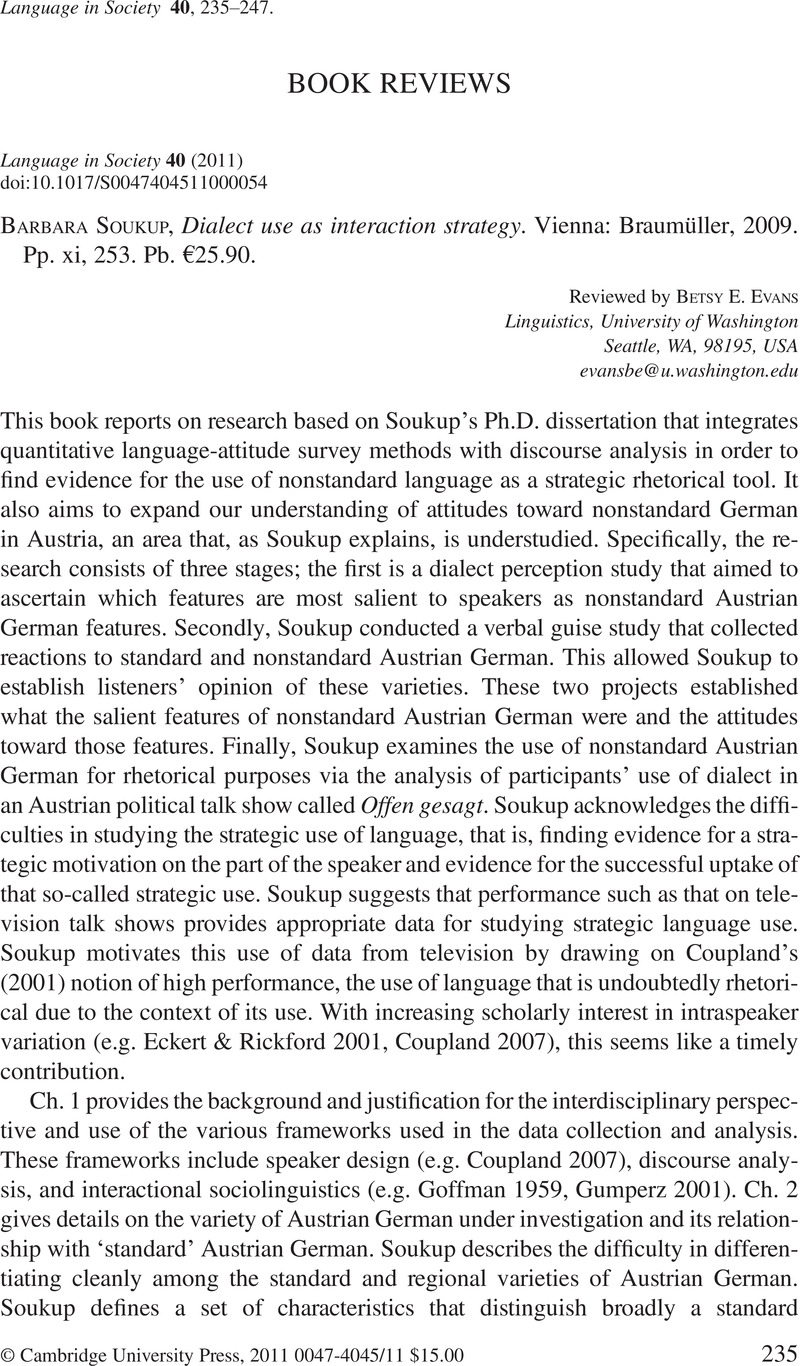No CrossRef data available.
Article contents
Barbara Soukup, Dialect use as interaction strategy. Vienna: Braumüller, 2009. Pp. xi, 253. Pb. €25.90.
Published online by Cambridge University Press: 16 March 2011
Abstract
An abstract is not available for this content so a preview has been provided. Please use the Get access link above for information on how to access this content.

- Type
- Book Reviews
- Information
- Copyright
- Copyright © Cambridge University Press 2011
References
REFERENCES
Coupland, Nikolas (2001). Language, situation, and the relational self: Theorizing dialect-style in sociolinguistics. In Eckert, Penelope & Rickford, John (eds.), Style and sociolinguistic variation, 185–210. Cambridge: Cambridge University Press.Google Scholar
Eckert, Penelope, & Rickford, John (2001). Style and sociolinguistic variation. Cambridge: Cambridge University Press.Google Scholar
Goffman, Erving (1959). Forms of talk. Philadelphia: University of Pennsylvania Press.Google Scholar
Gumperz, John J. (2001). Interactional sociolinguistics: A personal perspective. In Schiffrin, Deborah, Tannen, Deborah, & Hamilton, Heidi E (eds.), The handbook of discourse analysis, 215–28. Malden, MA: Blackwell.Google Scholar
Lambert, Wallace E.; Hodgson, Richard C.; Gardner, Robert C.; & Fillenbaum, Stanley (1960). Evaluational reactions to spoken languages. Journal of Abnormal and Social Psychology 60:44–51.CrossRefGoogle ScholarPubMed


